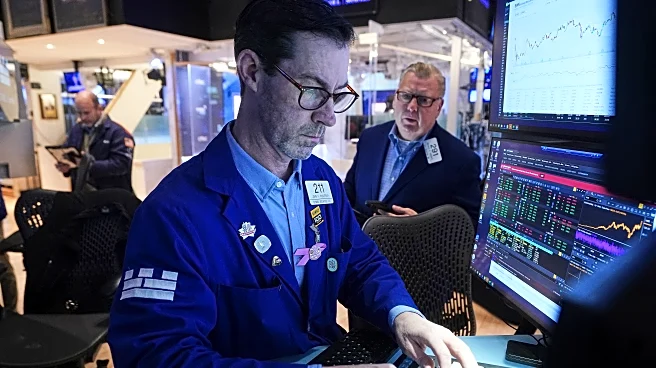What's Happening?
As organizations increasingly adopt blended workforce models, incorporating freelancers, contractors, and part-time executives, the concept of psychological ownership is becoming crucial for success. Psychological
ownership refers to the feeling of truly 'owning' one's role and contributions, fostering commitment and engagement among external professionals. This sense of ownership is achieved by aligning roles with individual identities, ensuring that work is meaningful and impactful, and creating a sense of belonging within the organization. By fostering psychological ownership, companies can transform temporary working relationships into lasting partnerships, enhancing collaboration and innovation.
Why It's Important?
The rise of blended workforce models offers organizations flexibility and access to specialized skills without the costs associated with full-time employment. However, managing such a workforce can be challenging, as external professionals may feel disconnected or undervalued. Psychological ownership addresses these challenges by fostering a sense of belonging and commitment, leading to more stable and productive working relationships. By investing in psychological ownership, organizations can enhance employee satisfaction, reduce turnover, and drive innovation. This approach is essential for leveraging the full potential of a diverse workforce and achieving long-term success.
Beyond the Headlines
The emphasis on psychological ownership highlights the evolving nature of work and the need for organizations to adapt their management practices. It underscores the importance of creating inclusive environments where all workers feel valued and connected to the organization's mission. This shift requires a cultural change, promoting transparency, trust, and collaboration. As more companies adopt blended workforce models, the focus on psychological ownership could lead to broader changes in organizational structures and leadership styles, fostering a more dynamic and resilient business environment.










